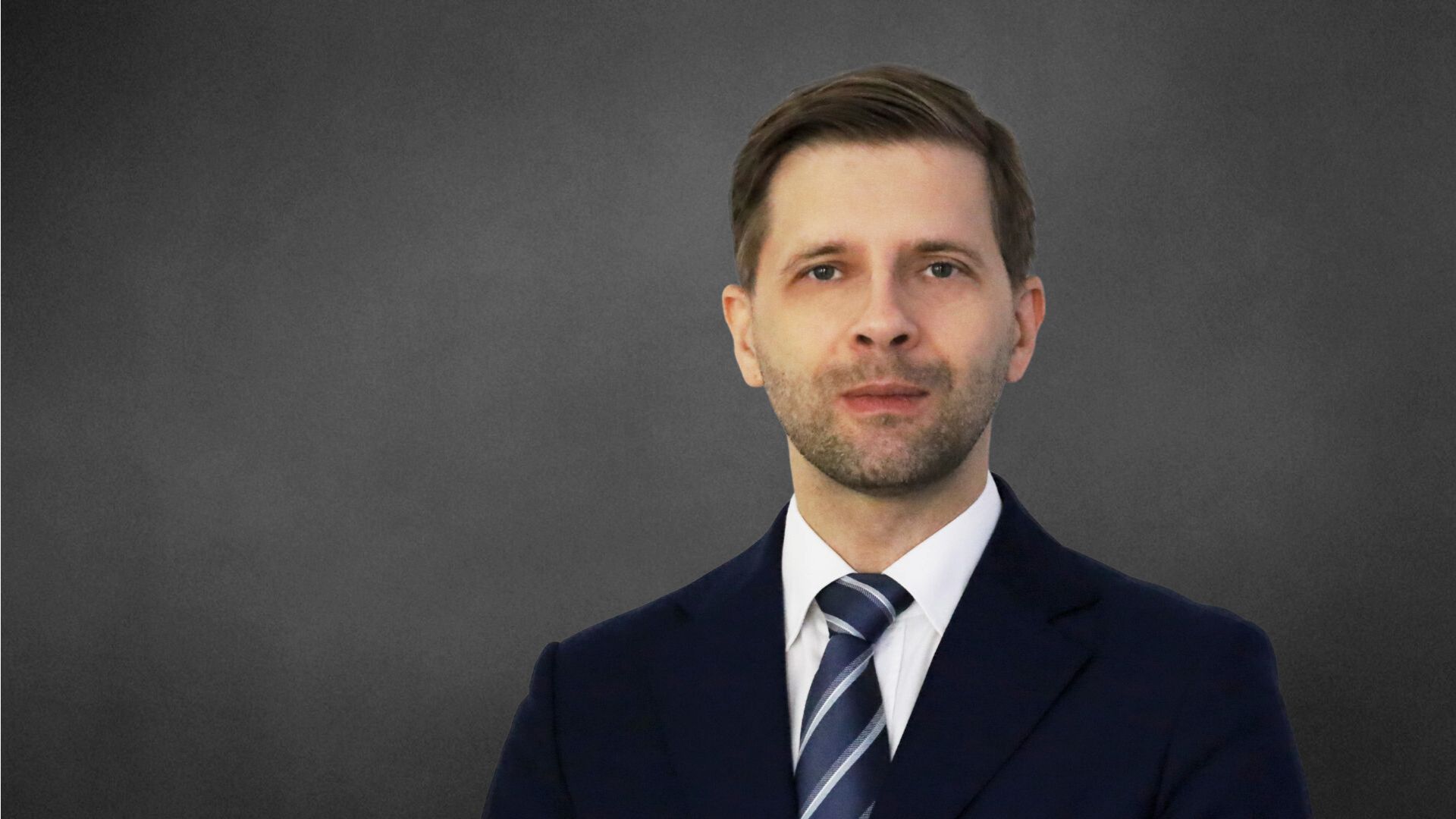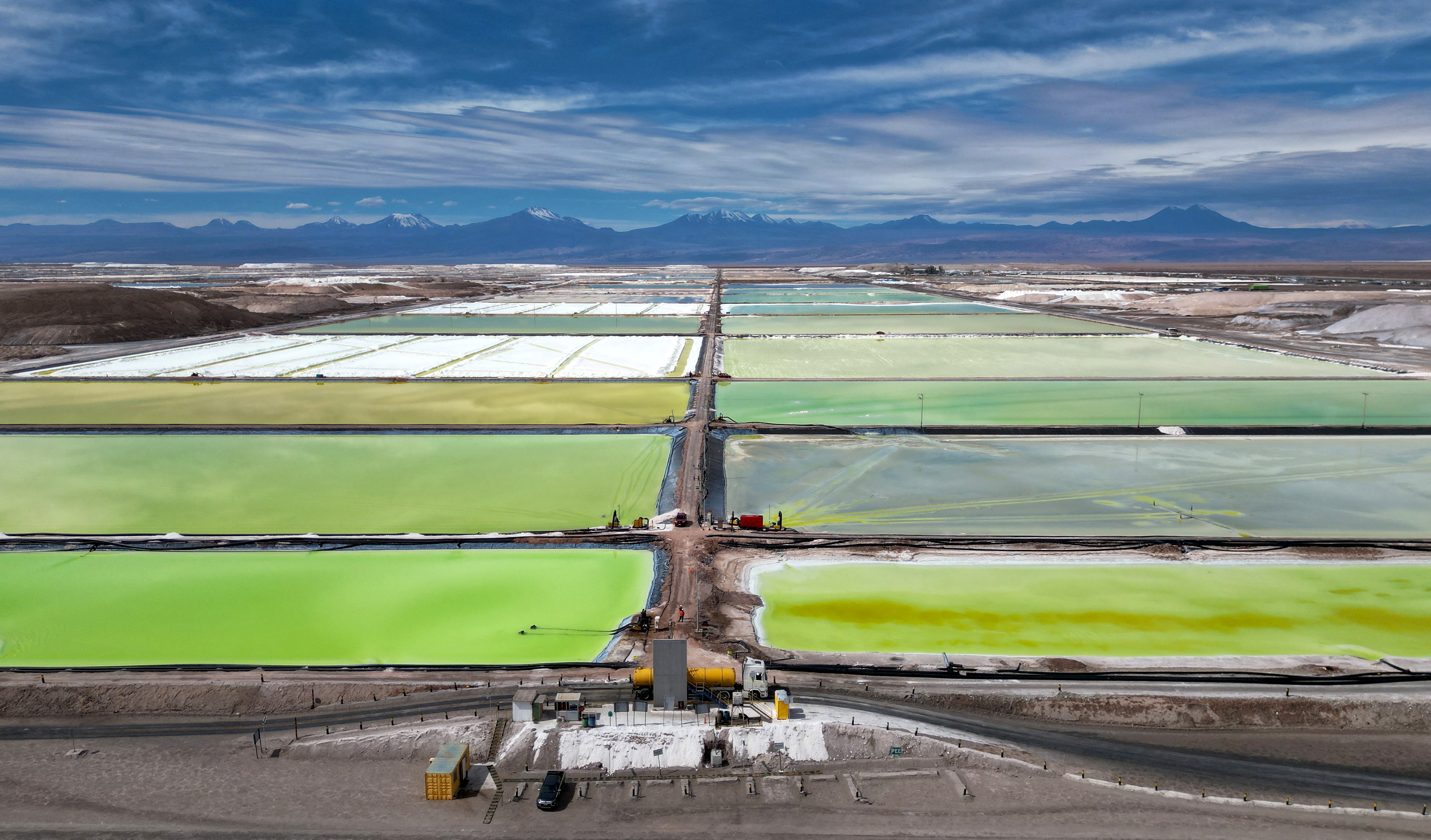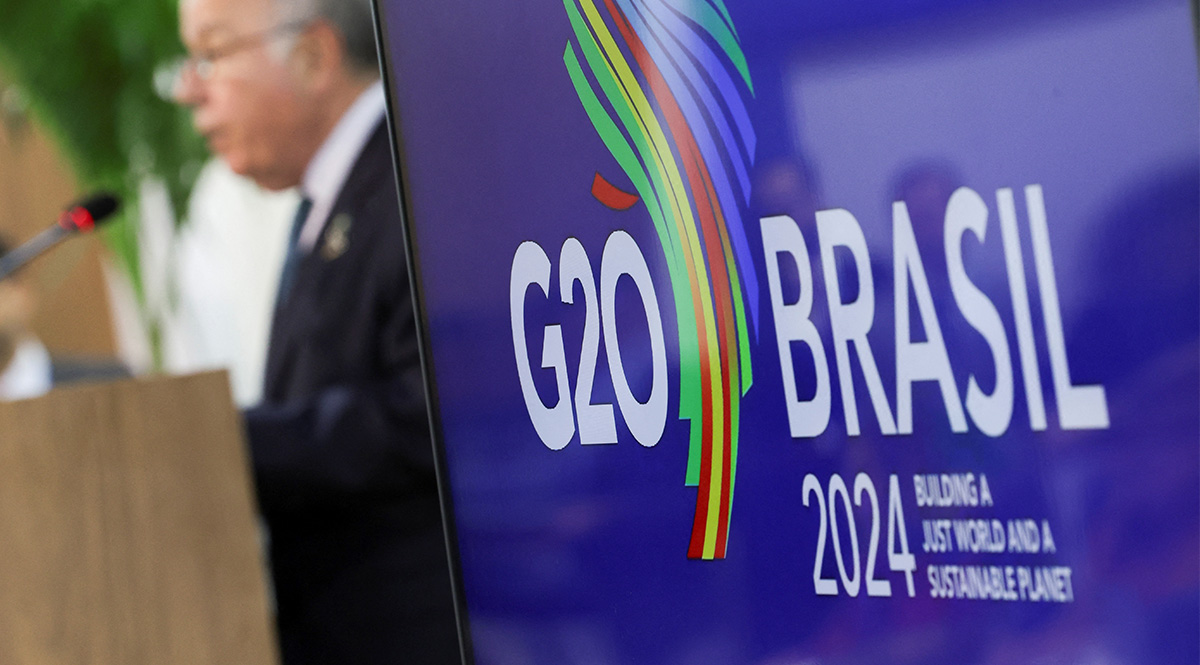Mexico Chooses Political Continuity in New Government
Claudia Sheinbaum’s decisive victory in the June presidential elections will allow her government to continue outgoing President Andrés Manuel López Obrador’s drive to change Mexico’s development model, including an increased role for the state in the economy. The majority obtained in the parliamentary elections by the government coalition, led by Morena (Sheinbaum and López Obrador’s party) will help with those plans. In foreign policy, close cooperation with the U.S. will remain the priority. New opportunities in EU-Mexico relations, including breaking the deadlock in the ratification of their new trade agreement, may emerge.
.jpg) Raquel Cunha / Reuters / Forum
Raquel Cunha / Reuters / Forum
Mexico’s 2 June general election saw a record number of nearly 20,000 positions at various levels, including the office of president (also head of government), which on 1 October will be taken over by a woman for the first time. Sheinbaum won almost 60% of the vote, representing the left-wing coalition “Let’s Continue to Make History” (SHH), which includes the Morena party, the Green Party (PVEM), and the Labour Party (PT). In the elections to Congress, the new term of which starts on 1 September, SHH won a constitutional two-thirds majority in the Chamber of Deputies (373 out of 500 seats) and a slightly smaller majority in the Senate (83 out of 128 seats). Morena itself is close to an absolute majority in each chamber of the parliament. Representatives of the party won the offices of head of government of Mexico City and six of the eight state governors elected in June and will lead 24 of the 32 federal units. The success of Morena’s candidates is mainly due to the high popularity of López Obrador (president since 2018 and commonly referred to as AMLO) thanks to the expansion of social policies and his image as a leader close to ordinary citizens, among other reasons.
Main Internal Challenges
Sheinbaum will have to meet the electorate’s high expectations for the continuation of the so-called Fourth Transformation (4T), AMLO’s guiding concept of rebuilding the state’s development model. The name stems from the assumption that it involves landmark changes equal in stature to three other historical moments for Mexico: the War of Independence and the so-called War of Reform in the 19th century, and the Revolution in the early 20th century.
The 4T concept includes declarations of a move away from neoliberalism—identified with corruption—in favour of a stronger role for the state in the economy, among other goals. Decisions to expand benefits and social spending or on high increases in the minimum wage also stemmed from this approach. The AMLO government also expanded state control over the exploitation of strategic natural resources, including oil and lithium. He completed major infrastructure projects, including a new airport near the capital and rail routes: the Tren Maya on the Yucatán Peninsula and the Tren Interoceánico, connecting the Pacific Ocean to the Gulf of Mexico. The new president’s challenges in maintaining these policies will be the record high budget deficit and the prospects for relatively slow growth (2.4% of GDP this year). However, she is counting on an increase in budget revenues, including by attracting investors and relocating supply chains to Mexico.
Sheinbaum also supports the controversial constitutional reforms being pushed by the outgoing authorities. These include in particular the plan to introduce universal voting for judges and members of electoral bodies, justified by the fight against corruption and privilege. Critics of the government see this as a threat to democracy. AMLO intends to push through these changes before the end of his presidency in September, hoping for the required SHH majority in the new parliament.
Another major challenge is improving the state of public security, including in the fight against organised crime. The outgoing government emphasised tackling the problem at the grassroots level by improving living conditions, among other things. It also created the National Guard in place of the federal police as a formation designed to strengthen security. Contrary to declarations, the president not only did not reduce the army’s involvement in the fight against drug cartels, but strengthened it in other spheres, for example, in the supervision of major infrastructure projects. These changes though have not saved Mexico from the more than 170,000 homicides during AMLO’s term—a higher number than during previous presidencies. During the last election campaign alone, dozens of candidates were killed and hundreds more resigned for fear of their lives.
Despite the high level of support for the new president, there are discussions about whether she will prove independent of AMLO and ensure the unity of SHH. Sheinbaum’s initial appointments to her future government suggest that she will rely on experienced figures from her predecessor’s government (including Marcelo Ebrard and Alicia Barcena, the former and current foreign ministers). The new president will be keen to maintain her popularity. On AMLO’s initiative, Mexico can hold a referendum to recall the head of state in the middle of the six-year term. It requires a minimum 3% of voters to trigger the mechanism and participation of at least 40% of eligible voters for the result to be valid.
Mexico’s International Engagement
Sheinbaum will maintain Mexico’s foreign policy course. She will emphasise the development of relations within Latin America as a counterbalance to relations with the U.S. However, relations with the latter will remain a priority regardless of the outcome of the November U.S. presidential election due to close trade ties and interests in the sphere of migration policy and the fight against drug trafficking. There is the probability of high tensions to remain over the issue of migration control—in 2023, the U.S. detained more than 2.5 million irregular migrants at the border with Mexico, four times higher than in 2018. In addition, the USMCA trade agreement involving Canada, Mexico, and the United States is scheduled to be reviewed in 2026.
In defining its foreign policy, the AMLO government ostentatiously declared a commitment to peaceful cooperation with all states and to non-interference in their internal affairs as well as to its traditional openness in granting asylum. In practice, he applied these principles selectively, clearly guided by left-wing ideological sympathies. In 2019, he helped Evo Morales, the former president of Bolivia, flee the country after a controversial election. In 2022, he supported Peruvian President Pedro Castillo, who was arrested for an attempted self-coup. In April this year, Mexico broke off diplomatic relations with Ecuador after that country forcibly extricated Jorge Glass, the former Ecuadorian vice-president convicted of corruption, from the Mexican embassy in Quito where he had been sheltered. In relations with countries outside the region, AMLO’s government, for example, supported a peaceful solution to the war in Ukraine, while developing normal relations with Russia. It also strengthened cooperation with China, especially in the economic sphere.
Declarations by representatives of the future government indicate an interest in revitalising cooperation with the EU. Although Mexico’s relationship with the EU has the status of a strategic partnership, their last summit was held almost a decade ago. The main problem remains the protracted ratification of a new Global Agreement to replace the old deal, which has been in force since 2000 (covering trade and political dialogue, among other areas). The dispute over how to adopt the agreement and the EU’s reservations about the negative effects of the AMLO government’s energy-sector reforms on European investors, are major obstacles.
Conclusions and Outlook
With a strong electoral mandate and the SHH majority in parliament, Sheinbaum will gain a high level of freedom to implement her plans. Expanding social policies and further improving wage conditions for the lowest earners will be key to maintaining the new government’s popularity, but the scale of these changes may be reduced by budgetary constraints and opposition from better-off sections of society. Reforms abolishing the independence of the judiciary may exacerbate internal tensions.
In foreign policy, the development of relations with the United States will remain key for the Sheinbaum government. A potential win by Donald Trump and a possible intensification of trade protectionism may increase U.S. pressure on Mexico to limit economic relations with China. At the same time, it may favour nearshoring, which is the relocation of parts of supply chains closer to the U.S., such as Mexico. Cooperation in the sphere of migration control and combating drug trafficking will be prominent topics in bilateral relations.
It is worthwhile for the EU and Mexico to reinstate summits as an instrument that would help overcome difficulties in the ratification process of the new Global Agreement and foster the development of cooperation in other key areas, such as energy and the digital transformation. The adoption of the agreement will expand opportunities for the development of Polish-Mexican economic cooperation—Mexico is Poland’s main export market in Latin America. Sheinbaum’s presidency may help foster the implementation of the 2017 declaration on building a Polish-Mexican strategic partnership.




.jpg)
